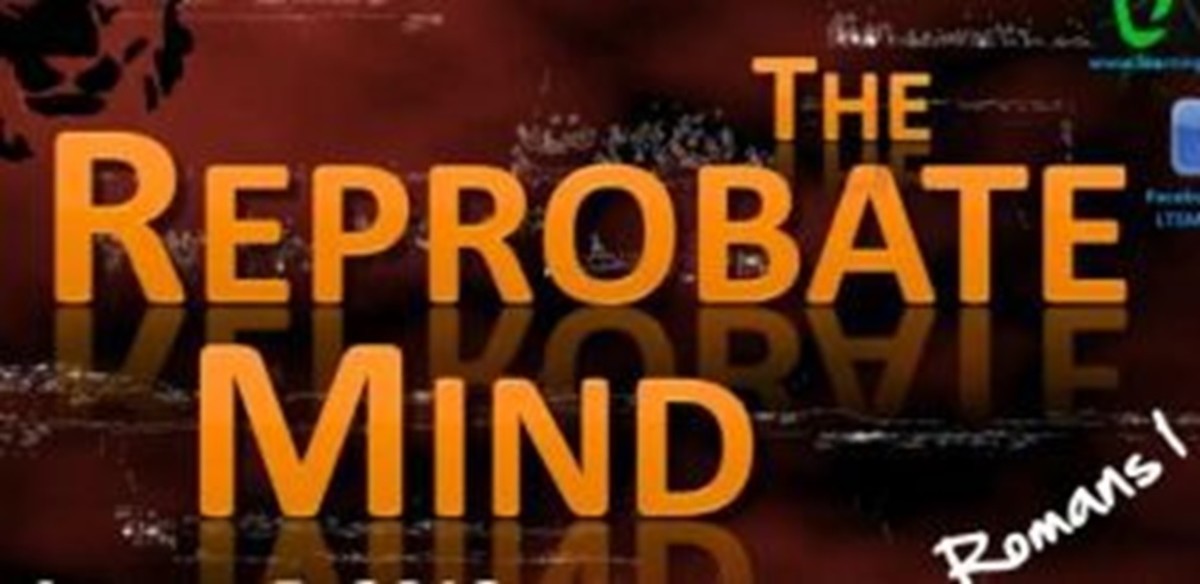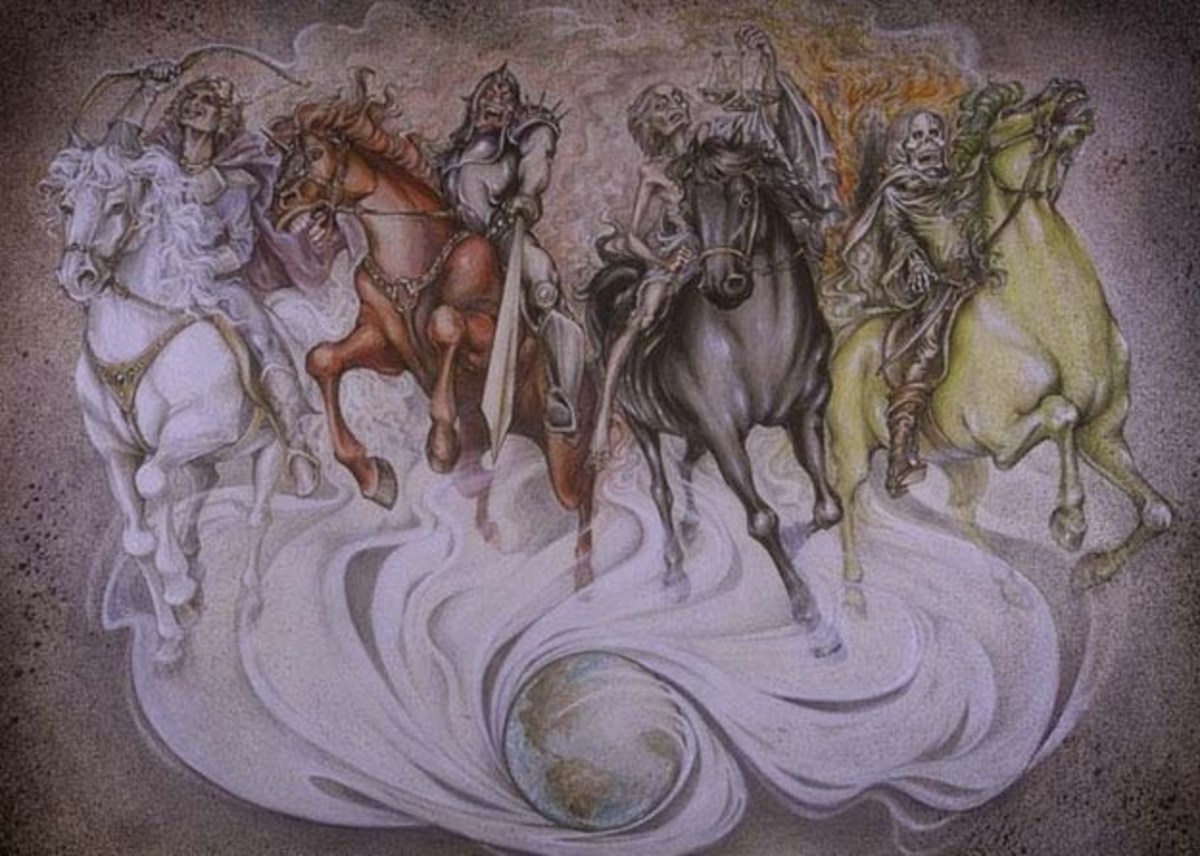Does Grace Lead to Sin?

Compelled by God's Love
I read a story recently from an unknown author about a husband and wife who didn't really love one another. The husband was quite demanding of his wife and she, out of a sense of duty, tried to live up to his demands. He even had a list drawn up and insisted that it be done to the letter. The demands were such things as getting up at a certain time, making sure that meals were prepared properly, and doing household chores in the proper manner.
This went on for years until the man finally died. The woman soon met another man who loved her dearly and treated her like a queen. She was extremely happy and grateful for this new relationship that she had never experienced in her life up until that time.
One day she was doing housework and came across one of the lists that her former husband had made up for her to do. When she read through the list, the woman was utterly amazed that, even though her new husband never demanded anything of her, she was doing all the things on that list. She loved this man so much and was so grateful to have such a kind and generous man that she did all the things on the list, not out of obligation but out of a deep desire to please him and show to him her love.
That little story illustrates what happens when we are saved. Some would say that God's grace or unmerited favor toward us will make us desire to sin since salvation is a free gift of God apart from any and all works that we do (Ephesians 2:8,9). If God will save us anyway then why not sin with abandon and do what we want? Why not eat, drink and be merry and allow God's grace to really be demonstrated in our life?
But the fact is that a person who is truly saved realizes what God has done for him or her. They understand that Jesus paid the ultimate price of death on the cross in order for us to be saved from sin and hell. A person who has truly experienced salvation by the grace of God will comprehend the fact that the Creator and Sustainer of the universe loved them so much that he didn't want them to live without him. And it is that love of God which will entice the Christian to desire to please and serve the Lord in all that they do. It is not because of a fear that God will somehow reject them. It is rather out of gratitude and a genuine love for the one who first loved us.
I. License and Grace Don't Mix
There are two major errors that one can fall into when it comes to the grace of God. One is legalism. Simply put, legalism is a system of beliefs or rituals that people believe must be adhered to in order to obtain or retain favor with the God of the universe.
On the opposite end of the spectrum, there is license. One dictionary defined license as a lack of restraint or excessive freedom. It went on to say that it was a heedlessness for the precepts of proper behavior, especially with regard to sex. And finally, it put it very simply by saying that license was an excuse or justification for doing something wrong.
People who believe that salvation by grace through faith is an anything-goes belief system that gives us a license to sin truly do not understand grace. The Bible teaches that we were dead in trespasses and sins (Ephesians 2:1-3). Dead men are helpless. They can do nothing to save themselves or change their situation. We were truly without hope and without God in the world (Ephesians 2:12).
Scripture further teaches that those who don't know Christ are objects of God's wrath (Ephesians 2:3; John 3:36). And no amount of good works could ever make us right with a holy God (Ephesians 2:8,9; Titus 3:5). His standard is perfection (Matthew 5:48; James 2:10). And obviously, none of us are perfectly sinless.
The only way we could ever be saved is if God, in his mercy, would reach down to us and provide the way of salvation from sin (John 3:16,17; Titus 3:5). Jesus Christ died on the cross to deliver us from the slavery of sin (Romans 6:18). And has delivered us so that we could become all that God wanted us to be when he created us. We were created to live in such a way as to bring him glory for eternity (Ephesian 1:6).
An illustration of sinning after salvation can be found in a man being rescued from a burning building and taken to a place of safety, only to run back into that building again. You have the freedom to do that, of course, but why would you want to do such a thing. In the case of the Christian, you don't lose your salvation but sin can still destroy your life on this earth, harm others, and cause you to lose rewards in heaven (I Corinthians 3:12-15). Sin always brings harm in some way. It is simply foolish to return to the thing from which you were delivered.
The major thing that we have to remember when it comes to salvation by grace is that license and grace don't mix at all. Grace is not a license to sin. It is the freedom to do what is right and a freedom not to sin. Those who don't know Christ as Savior can do nothing but sin for "without faith, it is impossible to please God" (Hebrews 11:6). And the Bible tells us that unbelievers are slaves to sin (John 8:34). Christians are freed from that slavery and don't have to sin any longer.
Liberty and License
II. Paul's Word on License
This question of sinning to show God's grace in a greater way is not new. The Apostle Paul faced that question more than two thousand years ago. He had earlier said in Romans 5:20 that the Law was brought in so that the trespass or sin might increase. In other words, it made men aware of their sin and their inability to keep God's laws and his standards. He said something similar in Galatians that the law served as a tutor to drive men to Christ (Galatians 3:24)
Then in the rest of Romans 5:20 and also verse 21 Paul says this:
"But where sin increased, grace increased all the more, so that, just as sin reigned in death, so also grace might reign through righteousness to bring eternal life through Jesus Christ our Lord."
Of course, Paul knew that these verses could be misunderstood as a license to sin and to do as you please so he tells the Romans in the following chapter:
'What shall we say, then? Shall we go on sinning so that grace may increase? By no means! We are those who have died to sin; how can we live in it any longer?" (6:1,2).
A modern rendering of "by no means" could be "perish the thought!" or "absolutely not!" Such a thing as this is unthinkable!
When Jesus was crucified he took our sins upon him. He was our substitute. And he gave us his righteousness (II Corinthians 5:21). In Galatians 2:20 Paul informs us:
"I have been crucified with Christ and I no longer live, but Christ lives in me. The life I now live in the body, I live by faith in the Son of God, who loved me and gave himself for me."
The Apostle says further in Romans 6 that we not only died with Christ, we also were raised with him and given new life. Our old nature was crucified and rendered powerless to control us. And now we have been given a new nature that is no longer enslaved to sin (6:6,7).
So what we were powerless to do on our own, Jesus by his death, burial and resurrection gave us the power to accomplish through him. He further made our bodies the temple of the Holy Spirit. He lives in us. The Spirit gives us the power to resist the flesh and Satan and to produce the divine fruit of righteousness (I Corinthians 6:19,20; Galatians 5:22,23).
Paul's point in Romans 6 is that the sin that many want to do is the very sin that Christ died to redeem us from. Why should we put ourselves back into that bondage?
Conclusion
On September 22, 1862, President Abraham Lincoln issued a preliminary Emancipation Proclamation which gave freedom to more than 3 million slaves in the United States. By July 1, 1863, he issued the final Proclamation which declared that:
"All persons held as slaves” within the rebel states “are, and henceforward shall be free.”
However, even after the proclamation, many former slaves chose to remain with their masters since that was all that they knew.
We may feel sorry for these men and women but how many of us Christians stay in our own bondage to sin, thinking it is superior to a life lived by faith in the Son of God? And how many of us ask: "How far can I go and still be a Christian?" rather than: "How can I keep from sinning and live a life that is pleasing to God?"
License says that we can do all that we want and still be a Christian and God will save us anyway. Liberty says that Christ died to make us free from sin in order that we can now be slaves to a new master, Jesus Christ, and slaves to righteousness (Romans 6:18).
None of us is truly free. As the songwriter, Bob Dylan wisely said: "You've gotta serve somebody. It may be the Devil, or it may be the Lord, but you've gotta serve somebody!"
The choice is up to each of us. One master will lead to destruction, death and for the unbeliever, Hell. The other, Jesus Christ, will lead to purpose, eternal life and rewards in Heaven when we die. Two choices! Which will you choose? Please choose wisely!
© 2018 Jeff Shirley








